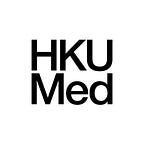‘Integrate Health Into All Policies’ — Prof Wang Chen Lecture Opens Dean’s Lecture Series
Events to mark 135 years of the University of Hong Kong’s Li Ka Shing Faculty of Medicine (HKUMed) kicked up a gear this month with the first lecture in the Dean’s Lecture Series.
Hosted in the Faculty Boardroom, the lecture was one of the first occasions to welcome an in-person audience since Hong Kong’s fifth wave of COVID-19 infections eased.
Professor Gabriel Leung, Dean of Medicine, invited Professor Wang Chen, President of the Chinese Academy of Medical Sciences and Peking Union Medical College, to deliver the lecture.
Entitled “The Coming Era of Medicine, Health and Public Health”, Professor Wang examined the interwoven nature of medicine, health, and public health with economics, national security, and politics.
Arguing for “Big Medicine” “Big Health” and “Big Public Health”, Professor Wang discussed the basic foundations for creating a robust health system.
Professor Wang possesses more than 30 years of experience in pulmonary and critical care medicine, with a research focus on complex conditions in respiratory medicine, public health, and health policy.
His lecture called for a shift towards “Big Health,” or expanding the definition of which professionals and policymakers are responsible for the health of the population.
“The main stakeholders in medicine are medical professionals, but for health, the stakeholders should be people from all walks of life,” he said. “When it comes to health, we should integrate health into all policies.”
“If all ministers consider themselves as ministers of health then we will be able to have better health outcomes,” Professor Wang added.
Professor Wang’s lecture pointed to the need for a change in mindset for governments to begin to view healthcare expenditure as an investment.
China’s current healthcare expenditure as a proportion of gross domestic product is well below the level recommended by Harvard and WHO, Professor Wang said. And he called for higher spending and more support for clinical research and innovation in healthcare.
“You should not only see healthcare expenditure or health spending [in terms of] diagnosis and treatment as being very costly, actually it should be a KPI, a social indicator of society’s level of wellbeing,” he said.
Touching on the concept of One Health, an approach to public health that relies on multiple sectors to consider the interactions between human, animal and environmental health, Professor Wang highlighted the need to place more emphasis on the health of the planet.
The effects of climate change on human life mean we should consider the health of our environment alongside physical, mental and social well-being when considering a person’s, or society’s overall health, he said.
Professor Wang’s lecture was followed by a panel discussion featuring Dr Bernhard Schwartländer, Global Health Envoy, German Ministry of Foreign Affairs, Priscilla Wong Chairman, HKU Council, and Professor Zheng Zhi-Jie Director, China Country Office, Bill & Melinda Gates Foundation. The panel was moderated by Professor Leung.
The full event recording is available here.
HKUMed is holding a series of events to mark the Faculty’s 135th anniversary. Keep an eye on the dedicated website for more details.
